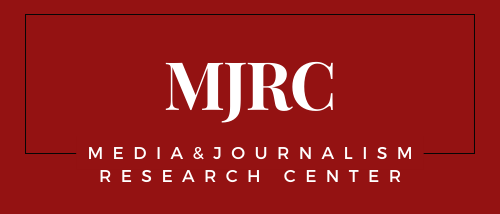Media Sustainability in Argentina: Many Davids and a Handful of Goliaths
A new report in the Media Influence Matrix project analyzes the impact of large technology players on Argentina’s media and journalism.
As communication and connectivity become central to the lives of the people in Argentina, the profitability of the system is concentrated in the hands of a few players, and the mechanisms for economic sustainability of content producers is weakening, according to a new report on technology, journalism and public sphere in Argentina published today by the Media and Journalism Research Center (MJRC).
The large digital platforms, mainly Google and Meta, are dominant. They have a very high penetration of their services in the country. WhatsApp, Instagram, Google, Chrome, Gmail, and Facebook are among the most widespread platforms/services in Argentinian society, wrote the report’s authors, Guillermo Mastrini, Carla Repetto, and Agustín Espada.
The internet is dominated by mobile connection that facilitates access to various types of information, including news, tutorials, finance, and commerce. The country’s main producers of journalistic content are not at loggerheads with the tech platforms as they compete for funding tech behemoths, primarily Google and Meta, award them.
In this context, the communications market is concentrated in the hands of fewer and fewer actors with a strong foreign capital presence. The circulation of news and information is captured by digital platforms, Google and Meta operating as gatekeepers, showing little willingness to negotiate with content producers.
The Argentine connectivity and telecommunications market is undergoing a major transformation. The country has three central actors with the ability to provide all services and compete. Two of them are foreign-owned (Claro and Telefónica) and one is nationally owned (Telecom). The latter is also one of the largest revenue-generating companies in the country.
The Argentine report is part of the Media Influence Matrix project, a comparative research project run by the MJRC that now covers more than 50 countries. This report is published in collaboration with OBSERVACOM, the Research Center on “Cultural Industries, Communication Policies, and Public Space” (ICEP) at the National University of Quilmes, Argentina, and the University of Santiago de Compostela (USC) in Spain.
See the report in English here.
For more information, see Argentina page in the Media Influence Matrix project.
Photo by Mauricio Guardiano on Unsplash.
Invest in independent media research and join a community of practice.
Your contribution supports MJRC’s investigations and global analysis. As a supporter, you can receive early access to new findings, invitations to small-group briefings, inclusion in our Supporters Circle updates, and the option to be listed on our Supporters Page.
Contribute to MJRC
